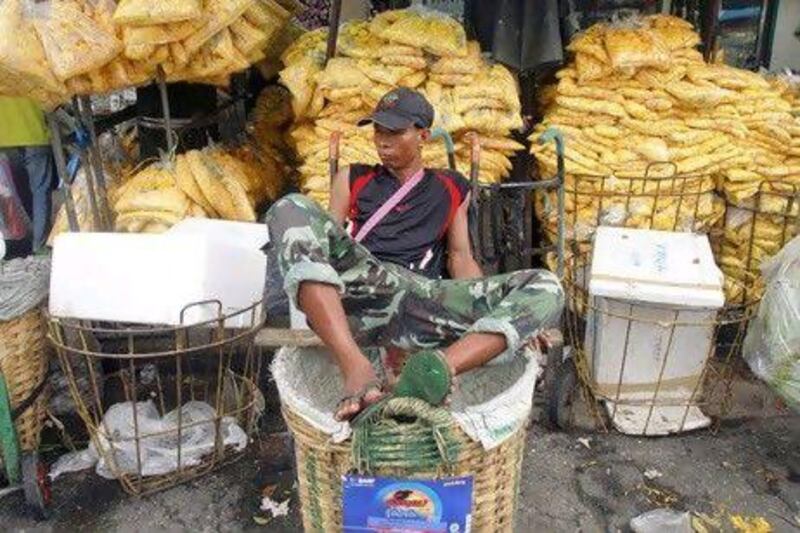It has been more than a year since unrest in Bangkok killed 91 people and injured 1,400. Thailand's King Bhumibol Adulyadej has dissolved parliament and a genera election is set to take place on July 3.
The election looks set to be a close call. Most opinion polls show that the Democrat Party, led by the British-born, Oxford-educated prime minister, Abhisit Vejjajiva, is trailing the opposition Puea Thai party. Puea Thai is effectively an organ of the exiled former prime minister Thaksin Shinawatra, the telecommunications tycoon-turned-premier who was ousted by a bloodless military coup in 2006.
The election announcement has prompted fears that violence will return to the Thai capital.
The picture of Thailand that has emerged in recent years is almost of a dual society, one where political uncertainty and turmoil have become a regular feature of life, but where the economy seems to steam ahead regardless.
At times it seems that South East Asia's second-biggest economy thrives on adversity.
The Thai stock market was among the best performers in the region last year, rallying as the fires in shopping malls and banks had barely been extinguished.
So far this year, the benchmark SET Index has gained 3.8 per cent, extending last year's 41 per cent rally. The economy grew 7.8 per cent last year, a 15-year high, despite the occupation of the business district of downtown Bangkok by Red Shirt protesters for weeks on end.
Thai stocks will probably weather any political unrest after the election in July, as economic growth boosts corporate earnings.
Inflation will take the edge off growth this year, but last month, the central bank forecast that Thailand's economy would expand 4.1 per cent this year as higher commodity prices boost farm income and subsidies shield consumers from higher global fuel prices.
The National Economic and Social Development Board similarly believes economic growth is on track to meet a target of between 3.5 and 4.5 per cent this year.
As everywhere else in the region, the worry is about rising inflation driven by oil and food prices. If the election will play a role in the economic growth outlook, that is only because the political parties are trying to boost their electoral chances by promising major spending programmes. Arkhom Termpittayapaisith, the secretary general of the state planning agency, has called on those seeking office to look at policies that benefit the country as a whole, not just special interests.
Corporates are performing strongly. CP All, Thailand's largest convenience store chain and a useful indicator of what Thai consumers are doing, reported a 24.4 per cent rise in first-quarter earnings. Sales were robust, shops were expanding and gross margins were better.
This is positive news in the short term, that its economy can withstand the effects of political upheaval. In the longer term, however, this is not sustainable, and a constant complaint by business leaders here is the lack of broader framework policies to take Thailand forward over a number of years.
Important domestic issues such as combatting corruption, encouraging innovation, and bigger-picture questions such as climate change, are not being addressed.
Dusit Nontanakorn, the chairman of the Thai Chamber of Commerce, told the Bangkok Post that the new government should prioritise longer-term policies for the country.
"Those who volunteer to do this job must come up with long-term policies for the next 10 to 20 years … once the Asean Economic Community is established, Thailand has to maintain its status as an Asean leader," he said.
Pornsil Patchrintanakul, the deputy secretary general of the Board of Trade, bemoaned the lack of concrete measures for the country's long-term benefit, with politicians putting out fires on issues such as inflation and minimum wages.
"No matter who forms the new government, we want them to focus more on restructuring the economy to address long-term issues, not just short-term populist policies," said Mr Pornsil.
Ultimately, introducing longer-term policies is something that can be done only when the political situation has stabilised to the point that economic planners can start looking ahead with real certainty.
Thailand's ability to thrive in the face of turmoil is remarkable, but in the face of growing competition from its strengthening neighbours in the region, and the growing influence of China, it needs to settle down sustainably to maintain its leadership role in the region.





